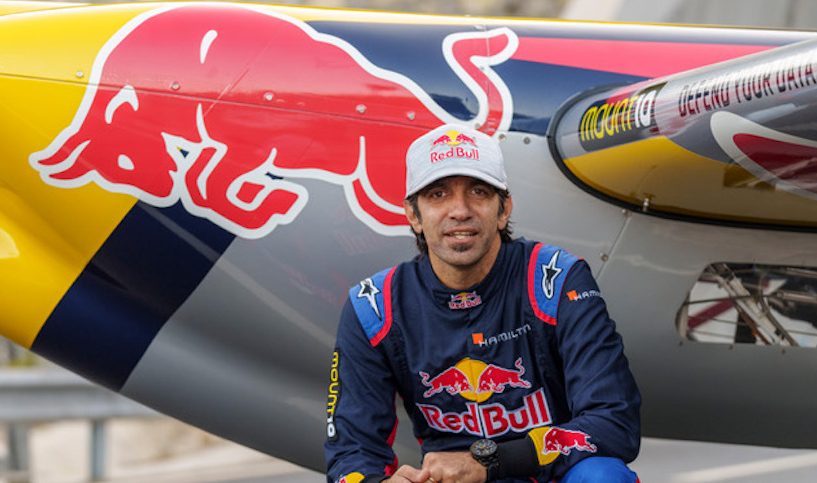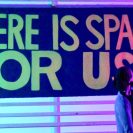Just after dawn on Saturday, 4 September 2021, professional race and stunt pilot Dario Costa of Italy wrote a new chapter in aviation history as he flew a race plane through the narrow confines of two enclosed auto tunnels just outside Istanbul. Closely surrounded by the concrete arc of the walls, Costa executed a tricky takeoff inside the first tunnel, flashed through an open-air gap and then continued his flight at 245 km/h through the second tunnel, flying no more than one meter from the asphalt. Here’s everything you need to know about Tunnel Pass:
Costa, 41, won the top category of the Italian Aerobatic Championship and became first Italian pilot to join, and earn a race win in, the Red Bull Air Race Challenger Class. With over two decades of flying experience, and numerous aviation feats to his credit, he has flown more than 60 airplane models and logged over 5,000 hours in the air – more than half in high-performance aerobatics.
Tunnel Pass was by far Costa’s most demanding and complex undertaking yet, requiring a team of 40 people, especially developed training technology and more than a year of preparation. Throughout, the project was shrouded in secrecy to limit variables and distractions, allowing complete focus for a successful flight that was no more than a simple idea on paper 12 months ago.
Located outside Istanbul on Northern Marmara Highway and initially put into service in March 2020, the dual Çatalca tunnels are state-of-the-art; but were designed for automobile traffic, not an aircraft in full flight.
At the controls of his specially modified Zivko Edge 540 race plane, Costa took off inside the first tunnel at 6:43 am local time (TRT), with the early hour putting the sun at the pilot’s back and offering optimal ambient conditions. Limited overhead clearance meant that he had to keep the aircraft on a flight path just above the asphalt, while also managing a tight distance of barely four meters between each wingtip and the unforgiving tunnel walls. Complicating the trajectory were changes in tunnel incline and shape.
From take-off to exiting the second tunnel, the flight lasted 43.44 seconds, covering a distance of 2,260 m / 2.26 km and reaching an average speed of 245 km/h in the second tunnel. Changes to airflow, combined with the highly sensitive steering of the aircraft, required pilot reaction times of less than 250 milliseconds and fine hand movements of mere millimeters throughout the flight. One of most critical moments came at the 360 m gap between tunnels, which exposed the race plane to cross winds as Costa prepared to thread it into the low, narrow opening of the second tunnel.
“Everything seemed to be happening so fast, but when I got out of the first tunnel, the plane started to move to the right because of the cross winds, and in my head, everything slowed down in that moment. I reacted and just focused on getting the plane back on the right path to enter the other tunnel. Then in my mind everything sped up all over again.”
Costa
When the race plane shot out of the other side, Costa pulled it into a celebratory loop before landing. The ecstatic pilot said: “I’d never flown in a tunnel in my life – nobody had ever done it – so there was a big question mark in my head whether everything would go as we expected or if there would be something to improvise. It was a big relief, of course, but big, big happiness was the main emotion. For me it’s another dream come true.”
The achievement set a new Guinness World Record: Longest Tunnel Flown through with an Airplane (1,610 m). Four other notable records were: first airplane flight through a tunnel, longest flight under a solid obstacle (1,610 m), first airplane flight through two tunnels, first airplane takeoff from a tunnel.
Costa was mentored by Hungarian aerobatic and racing pilot Péter Besenyei, 65, an aviation legend renowned for his role in developing and competing in the Red Bull Air Race. Besenyei is also well known for feats such as flying upside down under the Chain Bridge in Budapest.
“To fly in a tunnel is not a normal situation. The main point is the mindset. Because to fly straight at one meter off the ground and follow a center line is not really so difficult technically if you are over a runway. But in the tunnel, especially a dark tunnel, and to come out of the tunnel into the light and then back into another dark tunnel, it’s different. And also there are air waves that can affect the flight, and you should expect some bumps. It’s difficult in your mind because you know that if you make a mistake, the wall is hard.”
Besenyei
To learn more about Dario Costa follow @costadario on Instagram and visit his athlete page.








